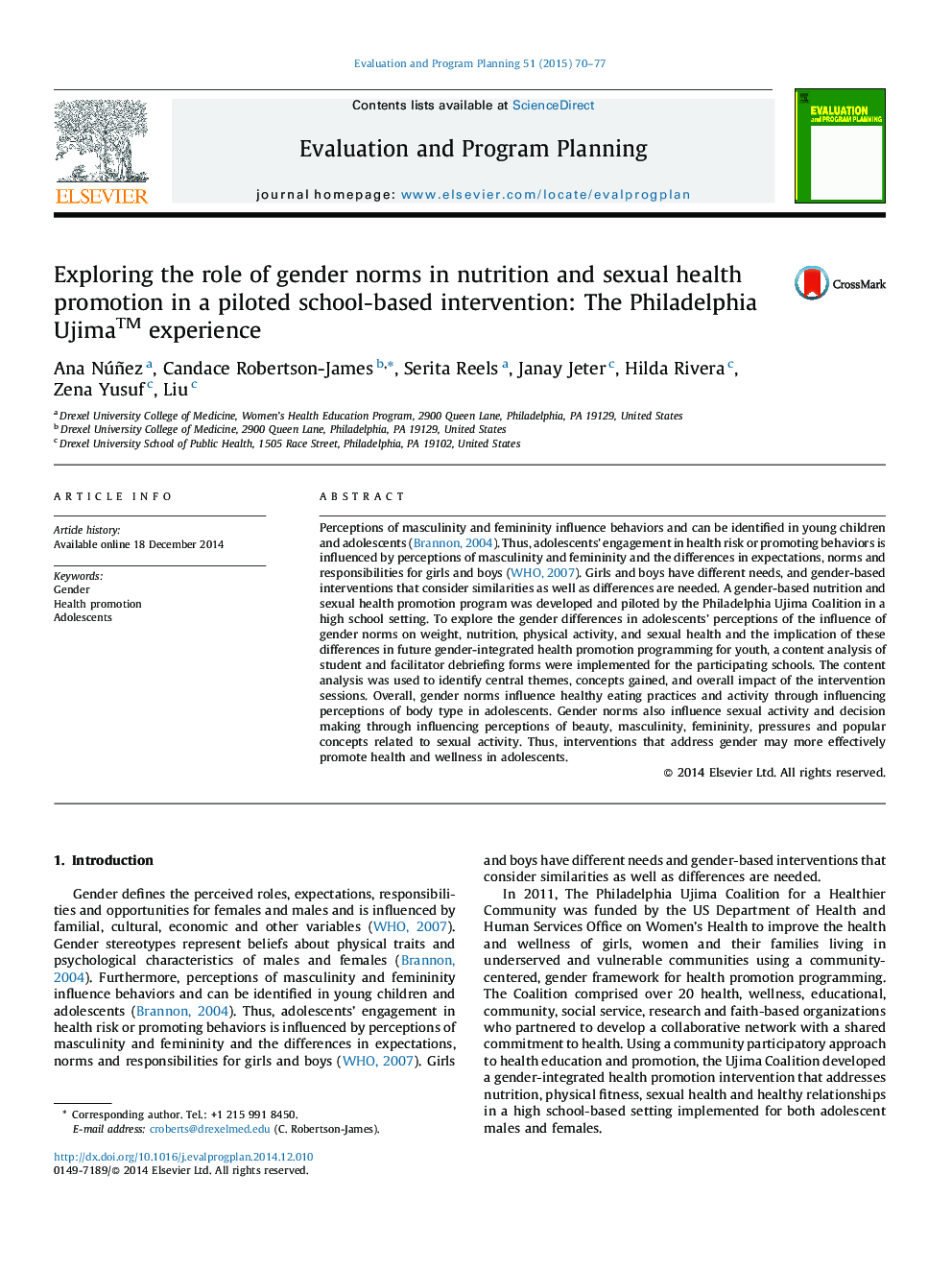| Article ID | Journal | Published Year | Pages | File Type |
|---|---|---|---|---|
| 322459 | Evaluation and Program Planning | 2015 | 8 Pages |
•Teen health behaviors are influenced by perceptions of masculinity and femininity.•Gender specific concepts should be incorporated into programs for youth.•Gender norms influence youths’ sexual activity.
Perceptions of masculinity and femininity influence behaviors and can be identified in young children and adolescents (Brannon, 2004). Thus, adolescents’ engagement in health risk or promoting behaviors is influenced by perceptions of masculinity and femininity and the differences in expectations, norms and responsibilities for girls and boys (WHO, 2007). Girls and boys have different needs, and gender-based interventions that consider similarities as well as differences are needed. A gender-based nutrition and sexual health promotion program was developed and piloted by the Philadelphia Ujima Coalition in a high school setting. To explore the gender differences in adolescents’ perceptions of the influence of gender norms on weight, nutrition, physical activity, and sexual health and the implication of these differences in future gender-integrated health promotion programming for youth, a content analysis of student and facilitator debriefing forms were implemented for the participating schools. The content analysis was used to identify central themes, concepts gained, and overall impact of the intervention sessions. Overall, gender norms influence healthy eating practices and activity through influencing perceptions of body type in adolescents. Gender norms also influence sexual activity and decision making through influencing perceptions of beauty, masculinity, femininity, pressures and popular concepts related to sexual activity. Thus, interventions that address gender may more effectively promote health and wellness in adolescents.
